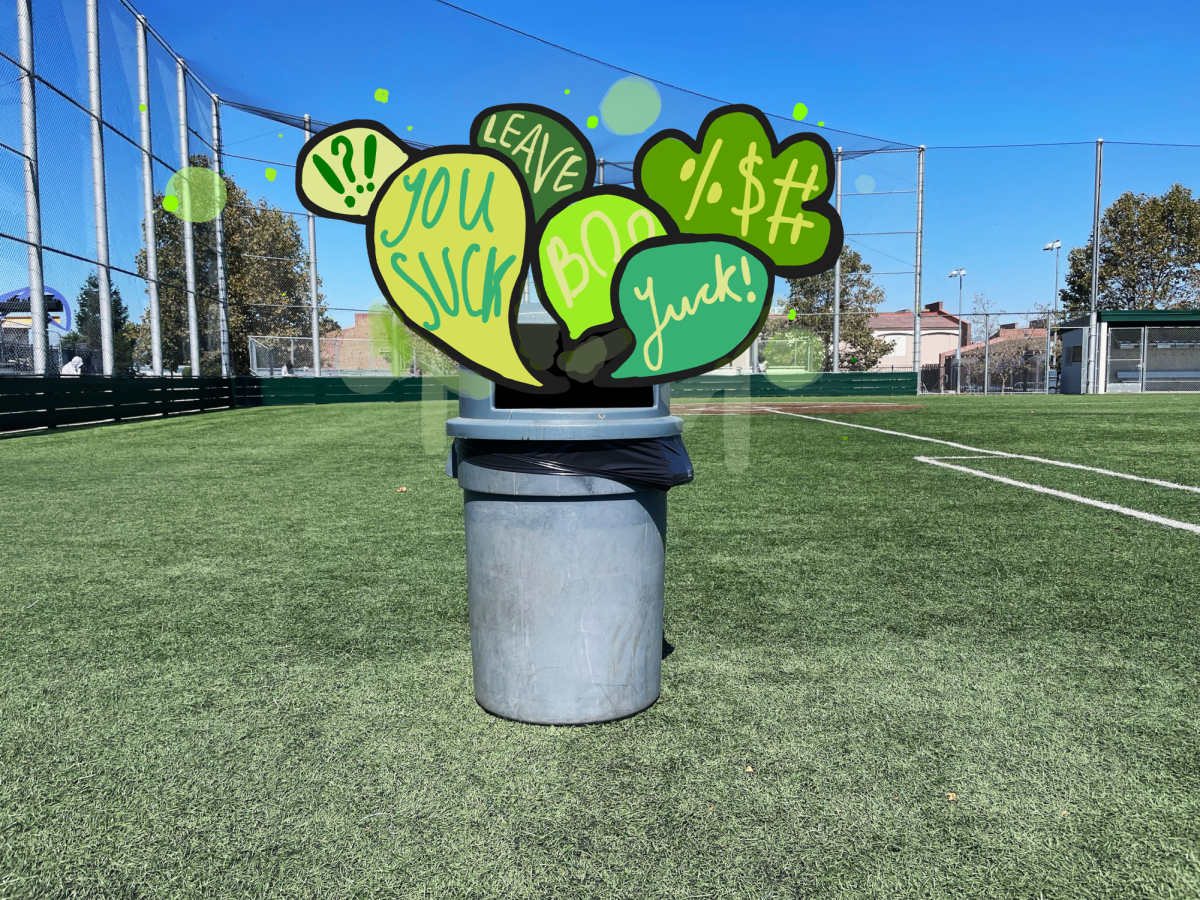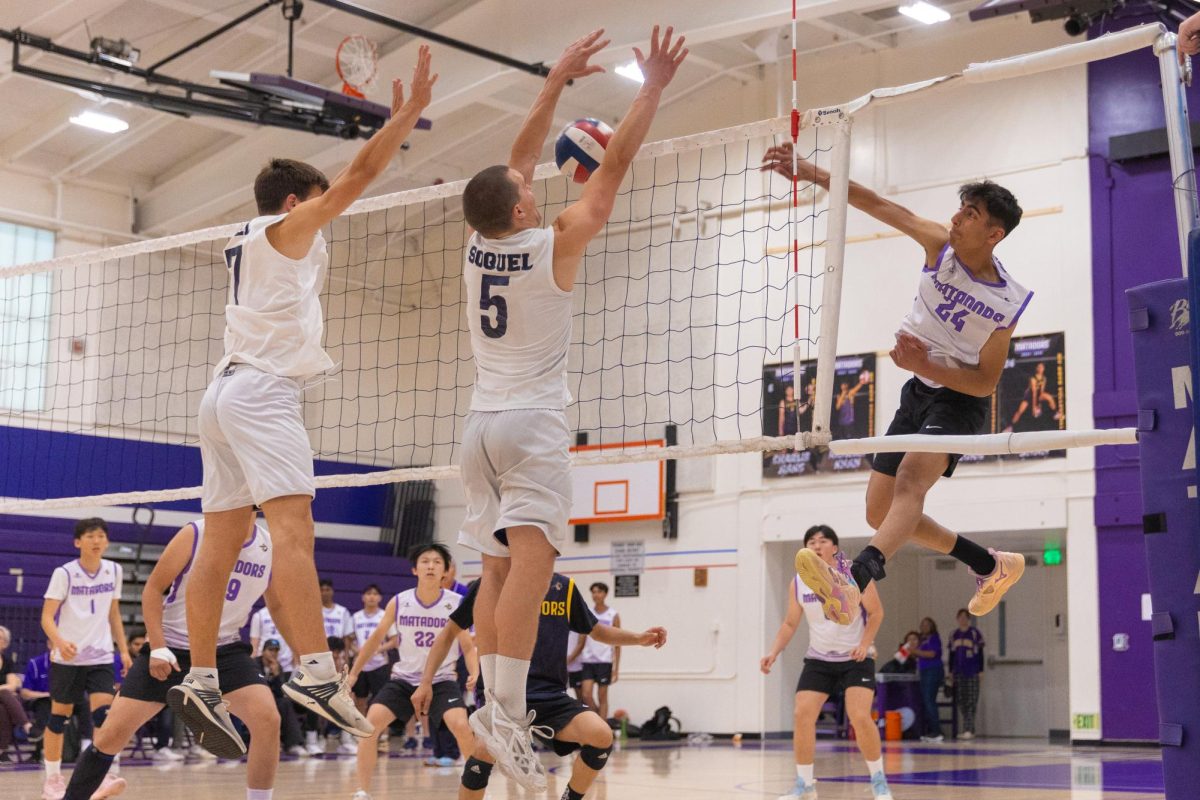Throughout the two-week Olympic games in Paris, American sprinter and 100-meter dash champion Noah Lyles went viral online for his criticism of American leagues and players, igniting rifts between players and fans across the nation.
The drama sparked after Lyles commented on how he believes NBA champions are falsely labeled as World Champions during a press conference in August 2023. Without hesitation he said, “World champion of what? The United States? Don’t get me wrong, I love the U.S. at times, but that ain’t the world.” From there, the beef remained intact until the Olympics. Criticizing all sports leagues in the U.S. prompted Miami Dolphins wide receiver Tyreek Hill to get involved, beginning a chain of jabs and retorts between Lyles and Hill over podcast, interviews and social media posts, ultimately resulting in a proposal to settle the dispute with a race at an undecided date.
Senior Justin Yaung, who participates in cross country and is a distance runner on the track and field team, followed the track and field events in this year’s Olympics closely and gained interest in the Noah Lyles drama. Yaung agrees with Lyles’ comments to some degree, mentioning that although Lyles correctly identified how American champions are labeled as World Champions despite not playing against international teams, he overlooks the fact that the NBA recruits foreign talent.
However, Yaung appreciates the media attention the sport has been getting as a result of Lyles’ trash talking. While not necessarily positive, he feels like most of the negative limelight falls on Lyles rather than the sport as a whole, which still keeps the sport relevant.
“His dramatics are good for the sport because track doesn’t get much coverage,” Yaung said. “It’s interesting to have either a hero or a villain to root for or against in the media, whereas track usually doesn’t get this type of stuff. I think people are more keen to hate on Lyles specifically, but I don’t think anyone’s saying that track is bad.”
Reflecting on his own experiences in cross country, Yaung says trash talking is kept to a minimum, and exchanges stay within the team and never go beyond friendly jabs. In a generally supportive environment that the cross-country team fosters, these slight taunts can motivate runners to perform their best.
In contrast, senior and Varsity Volleyball player Samantha Tong notes how volleyball tends to have a more intense environment due to trash talking. She agrees that Lyles’ comments help bring viewership to the sport itself, mentioning how while trash talking can be seen as distasteful in professional athletics, it can be repurposed as a means of media attention rather than just verbal snaps at the opponents.
“Lyles probably said it for some clout but also because he partially believes it,” Tong said. “Trash talk gets views. If there wasn’t a little shoving in hockey or some talk across the net in volleyball, nobody would watch it.”
Football Head Coach Ceazar Agront relates to Lyles’ trash talking. When he played football for his high school and college, he often trash talked to his opponents, saying he used it as a tool to give him an edge in games.
“It was a way to get into the opponent’s head before even playing,” Agront said. “A lot of my cousins played at various other high schools in the area and I would make stuff really personal with them, which would get them completely off their game.”
Tong says she has also engaged in trash talk during volleyball games, though she has noticed gender disparities when it comes to how acceptable it is within a sport. She finds that women tend to face more backlash when engaging in trash talk, while comments from male athletes are more likely to be dismissed.
“I feel like in a lot of male sports, trash talking is definitely more prevalent, and more excused,” Tong said. “In women’s sports, there’s a double standard. A lot of times people refer to women that trash talk as b——. They refer to women that trash talk as dirty, and it’s very derogatory.”
According to Tong, jabs are often between teams rather than within and that can heighten tension. She finds that making an enemy on the other side of the court unites the team and fuels the competitive spirit that helps the team secure its wins. While the trash talking can escalate hostilities, Tong has learned how to separate her athletic and personal life.
“The beef just stays on the court,” Tong said. “Outside of the court you could be best friends with that person, but once you step onto the court, the beef is official. A lot of times, if there’s trash talk to one person, we kind of all unite together and we’re just like f— this b —- .”
In contrast, Agront uses his past experiences with trash talking to inform the way he coaches, and now encourages his team to be kind to their opponents. For example, Agront encourages his athletes to help the opponents they just outplayed, suggesting that helping them up is the best form of trash talk. He emphasizes that true talent should be demonstrated through actions, not words, and aggression has no place on the field.
“Show your talent and your skill with the way you play the game, and leave all the talking aside,” Agront said. “As the games have changed and evolved, it’s not really welcomed to a certain point. People don’t mind players talking. You get a warning here and there, but like, cussing and talking crazy has no place in the game.”
Tong’s volleyball career has helped her learn how to ignore hurtful comments that come out during gameplay, and instead use them to fuel her performance. However, she notices that these comments sometimes get in the way of younger players’ performances.
“Since I’ve been playing volleyball for longer, it doesn’t really affect me,” Tong said. “Sometimes it makes me play better: the more angry I play, the better I play. The more ‘into the game’ and more energy I have, the better I play. I definitely think that with younger athletes, sometimes it can get to their head, affecting how they play.”
Despite his past on the field, Agront explains he had to learn to control his temper and emotions on his own when playing. He advises those struggling to adapt around trash talk to reconnect themselves with their initial passion for their sport.
“Just remember why you play the game,” Agront said. “I didn’t have coaches when I was young to temper my demeanor and the way my attitude was. As I grew up and more adults got around me and told me, ‘Let my pads talk’ or ‘Let my game talk’ became the coaching point I brought forth as a coach.”











